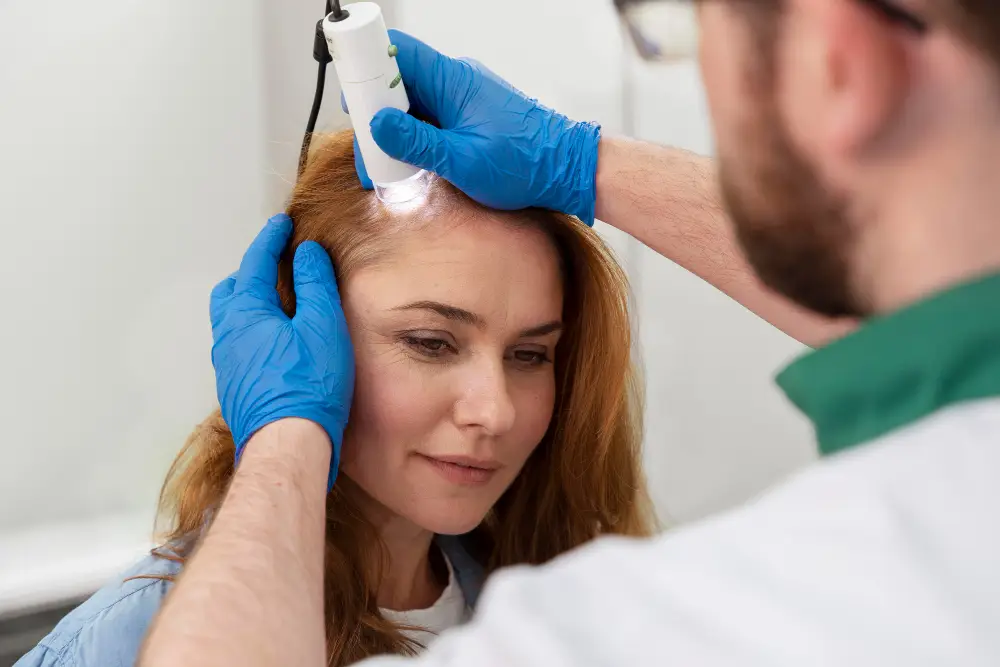
Stem Cell Treatment for Plantar Fasciitis: Your Guide to Regenerative Options
Key Takeaways for Your Foot Health Journey
- Chronic plantar fasciitis can be debilitating, often requiring a new approach beyond temporary symptom relief.
- Regenerative pathways, including those exploring stem cell principles, aim to support the body’s natural tissue repair mechanisms for long-term comfort.
- Pereira, Colombia, offers a supportive environment for medical care, combining modern facilities with a tranquil setting conducive to recovery.
- Navigating international medical options is made manageable with a dedicated patient advocacy team that handles logistics and support.
- Making an informed decision starts with a confidential case review to understand if regenerative approaches are a suitable consideration for your specific condition.
Table of Contents
- Introduction: Seeking Lasting Relief from Plantar Fasciitis
- The Stakes: Living with Chronic Plantar Fasciitis
- Understanding Plantar Fasciitis: Conventional Pathways
- The Regencord Approach in Pereira, Colombia: A Regenerative Outlook
- Navigating Your Journey: The Regencord Foot Health Pathway Checklist
- Our Philosophy: Empowering Informed Choices in Regenerative Health
- Addressing Your Concerns: Why Seeking Clarity is a Strategic Advantage
- Glossary of Key Terms
- Frequently Asked Questions (FAQ)
- Your Next Step Towards Informed Decision-Making
- Disclaimer
Introduction: Seeking Lasting Relief from Plantar Fasciitis
For many, plantar fasciitis is more than just a heel ache; it’s a persistent, often debilitating condition that impacts every step, limiting daily activities and quality of life. The frustration of chronic foot pain can lead individuals to explore every available pathway, from conventional therapies to more innovative approaches. This guide is designed to provide a comprehensive, educational perspective on exploring regenerative options for plantar fasciitis, with a particular focus on how the team at Regencord in Pereira, Colombia, supports individuals on this journey.
Our aim is not to offer guarantees, but to empower you with clarity. We understand the anxieties that accompany persistent pain and the search for effective solutions. Here, we delve into the nature of plantar fasciitis, discuss traditional management strategies, and introduce how a regenerative philosophy, facilitated in a supportive environment like Pereira, Colombia, might offer a different perspective for your consideration. This resource is crafted to help you understand the principles behind tissue repair and regeneration, and how a structured, patient-centric approach can make the process of exploring international medical options accessible and reassuring.
The Stakes: Living with Chronic Plantar Fasciitis

Plantar fasciitis, an inflammation of the thick band of tissue (the plantar fascia) that runs across the bottom of your foot, connecting your heel bone to your toes, is a common cause of heel pain. The discomfort is often most intense with the first steps in the morning or after periods of rest, gradually easing with activity but potentially worsening after prolonged standing or exercise. According to the U.S. National Institutes of Health (NIH), plantar fasciitis is one of the most common causes of heel pain, affecting a significant portion of the adult population and leading to millions of doctor visits annually. Its impact extends beyond physical discomfort, influencing mental well-being and daily routines.
Impact on Daily Life
Living with chronic plantar fasciitis can severely limit mobility, making simple tasks like walking, exercising, or even standing for extended periods a challenge. This can lead to a cascade of effects, from reduced physical activity and weight gain to difficulties at work and decreased participation in social activities. The persistent pain can also contribute to stress, anxiety, and a feeling of hopelessness, as individuals struggle to find lasting relief. A review of studies published in PubMed-indexed journals consistently highlights the significant functional limitations and reduced quality of life experienced by individuals with chronic plantar fasciitis.
Understanding the Underlying Challenge
The plantar fascia acts as a shock absorber, supporting the arch of your foot. Repetitive strain and micro-tears in this tissue are often the culprits behind the inflammation. When these tears don’t heal properly, or when the tissue lacks the optimal conditions for sustained repair, the condition can become chronic. This chronic nature is what often prompts individuals to seek alternatives when conventional methods yield only temporary results. The challenge lies in not just alleviating pain, but in fostering an environment for the fascia to regenerate and regain its natural strength and resilience.
Understanding Plantar Fasciitis: Conventional Pathways

When facing plantar fasciitis, many individuals initially explore a range of conventional treatments aimed at reducing inflammation and pain. These approaches are widely practiced in various healthcare systems globally and often form the first line of management.
Common Traditional Approaches
- Rest and Ice: Reducing activity that aggravates the fascia and applying ice to decrease inflammation are common initial recommendations.
- Stretching and Physical Therapy: Specific exercises to stretch the plantar fascia and Achilles tendon, along with strengthening exercises for the foot and calf muscles, are often prescribed. Physical therapists guide patients through these routines.
- Orthotic Devices: Custom or over-the-counter arch supports can help distribute pressure more evenly across the foot, providing support to the plantar fascia.
- Medications: Non-steroidal anti-inflammatory drugs (NSAIDs) can help manage pain and inflammation.
- Corticosteroid Injections: In some cases, injections of corticosteroids into the plantar fascia can provide temporary pain relief, though repeated injections may carry potential risks, as noted in general medical guidelines.
- Night Splints: These devices hold the foot in a flexed position overnight, stretching the calf and fascia.
- Surgery: For a small percentage of individuals who do not find relief through other methods after 6 to 12 months, surgical options, such as plantar fascia release, may be considered. These are typically reserved as a last resort due to their invasive nature and recovery period.
Limitations and the Search for Deeper Solutions
While these conventional pathways can offer relief for many, a significant number of individuals with chronic plantar fasciitis find that symptoms persist or recur. The frustration often stems from treatments that primarily address symptoms rather than fostering deep, sustained tissue repair. This can lead to a cycle of temporary improvements followed by flare-ups, prompting a search for approaches that might support the body’s own regenerative capabilities. This desire for more profound healing is what often draws individuals to explore innovative pathways that focus on tissue repair and regeneration.
The Regencord Approach in Pereira, Colombia: A Regenerative Outlook

In the pursuit of long-term relief for persistent conditions like plantar fasciitis, a different perspective can be invaluable. At Regencord, located in the vibrant city of Pereira, Colombia, our philosophy centers on an educational and supportive approach to regenerative medicine pathways. We believe in empowering individuals with information and facilitating access to care that supports the body’s natural capacity for healing and tissue repair, without making unverified clinical claims.
Why Pereira, Colombia? More Than Just a Destination
Pereira is emerging as a compelling destination for individuals seeking advanced healthcare options, and for good reason. Colombia, as a nation, has made significant investments in its healthcare infrastructure. The Colombian Ministry of Health, alongside regulatory bodies like INVIMA (Instituto Nacional de Vigilancia de Medicamentos y Alimentos), works to establish and maintain medical standards. This robust regulatory environment provides a framework for healthcare provision.
However, the advantage of Pereira extends beyond national standards. Our direct experience shows that Pereira offers a unique blend of modern medical facilities and a tranquil, recovery-conducive environment. Patients find that the absence of hurried clinical settings, combined with personalized attention in a serene location, significantly enhances their overall treatment experience and recovery. This holistic environment moves beyond just the procedure to encompass overall well-being. The city’s accessibility, welcoming culture, and beautiful natural surroundings, nestled in the heart of the coffee region, provide a calming backdrop often lacking in more traditional, high-stress medical environments.
Our Regenerative Philosophy and Patient Journey
At Regencord, our approach to regenerative pathways is rooted in a deep understanding of tissue biology and the body’s intricate healing processes. We facilitate care that aims to support your body’s ability to repair and regenerate, particularly focusing on conditions where tissue integrity is compromised, such as in chronic plantar fasciitis. Our patient journey is designed to be comprehensive and supportive, transforming what might appear daunting into a clear, guided pathway.
Many patients with chronic plantar fasciitis often express a profound sense of exhaustion from repeatedly engaging with treatments that offer only temporary relief. Our experience shows that shifting the focus from ‘managing symptoms’ to ‘facilitating regeneration,’ coupled with a meticulously guided patient journey that addresses every logistical and emotional concern, transforms the perception of care from a burden into a proactive step towards lasting comfort and renewed mobility.
Key Aspects of the Regencord Patient Journey:
- Confidential Case Review: This is the crucial first step. It involves a thorough review of your medical history, diagnostic images, and previous treatments to determine if regenerative pathways are a suitable consideration for your specific condition.
- Personalized Communication: Our patient advocacy team provides detailed information, answers your questions, and ensures you understand every aspect of the potential journey.
- Logistical Support: For individuals traveling to Pereira, we assist with travel planning, accommodation suggestions, and local transportation, ensuring a smooth and stress-free experience.
- Pre-Procedure Guidance: Clear instructions and preparatory advice are provided to optimize your readiness for any potential procedure.
- Care Coordination: We ensure seamless coordination with the medical professionals, providing a supportive environment during your stay.
- Post-Care Follow-up: Our commitment extends beyond the procedure, with guidance on post-treatment care and recovery to support your healing process.
Our focus is on empowering you with information and facilitating access to care that aligns with a philosophy of supporting your body’s innate capacity for health and restoration, all within the comforting and medically capable environment of Pereira, Colombia.
Navigating Your Journey: The Regencord Foot Health Pathway Checklist

To help simplify the process of exploring regenerative options for plantar fasciitis, we’ve developed “The Regencord Foot Health Pathway Checklist.” This practical resource is designed to guide you through the initial considerations and steps, ensuring you feel supported and informed at every stage.
What the Checklist Helps You With:
- Understanding Your Condition: Prompts to reflect on your symptoms, previous treatments, and what you hope to achieve.
- Gathering Essential Information: A guide on what medical records and diagnostic images are helpful for a confidential case review.
- Key Questions to Ask: A list of thoughtful questions to help you clarify your options and concerns during initial consultations.
- Logistical Preparations: Initial considerations for travel, accommodation, and support if you are considering care in Pereira, Colombia.
- Setting Realistic Expectations: Encourages reflection on potential outcomes and the importance of an informed decision-making process.
This checklist is a starting point, a tool to organize your thoughts and prepare for a comprehensive discussion about whether regenerative pathways might be a consideration for your plantar fasciitis. It’s designed to transform the perceived complexity of exploring advanced care into a manageable, step-by-step process.
Our Philosophy: Empowering Informed Choices in Regenerative Health

At Regencord, our core philosophy is built on patient empowerment through education and transparency. We understand that exploring regenerative options for a condition like plantar fasciitis involves navigating new territory for many. Our role is to facilitate understanding, not to dictate decisions.
Education as the Cornerstone
We believe that an informed patient is an empowered patient. Our team is dedicated to explaining the principles of regenerative medicine, how certain pathways aim to support tissue repair, and what considerations are involved. We draw on generally accepted scientific understanding, often referencing ongoing research from institutions like the NIH, to provide a balanced view. We do not make promises of outcomes but rather focus on the potential for supporting your body’s natural healing processes.
A Patient-Centric Approach
Every individual’s journey with plantar fasciitis is unique. We prioritize understanding your specific history, concerns, and aspirations. Our patient advocacy team is trained to listen empathetically, address your anxieties, and guide you through the process with compassion and clear communication. This means offering support not just clinically, but also logistically and emotionally, ensuring a comfortable and confident experience for those exploring care in Pereira, Colombia.
Transparency and Ethical Conduct
Upholding the highest ethical standards is fundamental to our operations. We are committed to strict FTC compliance, ensuring that all information provided is educational, source-verified, and avoids any unverified clinical superiority claims or guarantees of outcomes. Our goal is to foster trust by being transparent about what regenerative pathways entail, the careful assessment process, and the supportive environment we provide.
Our philosophy is about providing a clear path to explore innovative care, grounded in responsibility, education, and genuine patient support, helping you make a confident decision about your foot health.
Addressing Your Concerns: Why Seeking Clarity is a Strategic Advantage
It’s natural to have questions and hesitations when considering advanced or international medical options for chronic conditions like plantar fasciitis. Many individuals face similar concerns, ranging from the scientific validity of new approaches to the practicalities of travel and potential outcomes. Addressing these concerns directly and comprehensively is a strategic step toward making an informed decision about your health.
“Is this treatment truly legitimate and effective for plantar fasciitis?”
Understandably, exploring innovative pathways requires clear information. We focus on evidence-informed approaches, grounded in the principles of regenerative biology. While research in this field is continually advancing, the core idea is to support your body’s natural healing capabilities. Our process involves a thorough assessment to determine if regenerative options are suitable for your specific condition, ensuring decisions are based on the latest understanding of tissue repair, often highlighted in research by institutions like the NIH. We aim to provide a clear, science-based context for how these pathways may differ from traditional symptomatic relief.
“Is medical travel to Colombia safe and reliable? What about quality of care and language?”
Your safety and comfort are paramount. Colombia has made significant investments in its healthcare infrastructure, with many facilities meeting international standards. Regulatory bodies like INVIMA (Colombia’s National Food and Drug Surveillance Institute) oversee medical practices to ensure patient well-being. Pereira is a vibrant, welcoming city, and our team provides comprehensive support for international patients, including language assistance and logistical guidance, ensuring a seamless and secure experience from arrival to departure. Our focus is on facilitating access to a high standard of care within a supported environment.
“I’ve tried so many treatments for my plantar fasciitis already, and nothing has worked long-term. I’m afraid of more false hope and wasted resources.”
We recognize the frustration that comes with chronic pain and unsuccessful prior treatments. Our approach isn’t about quick fixes but about understanding the underlying issues of your plantar fasciitis. Through a confidential case review, we help you explore whether regenerative pathways, by focusing on tissue repair and regeneration, might offer a different direction from traditional symptomatic relief. We empower you with realistic expectations and comprehensive information to make an informed choice, respecting your personal journey towards relief and renewed mobility.
“The entire process of coordinating international treatment—travel, appointments, recovery—seems incredibly complicated and overwhelming.”
Navigating international medical care can seem complex, but that’s precisely why our patient advocacy team is here. We guide you through every step, from initial consultation and travel planning to accommodation, treatment logistics, and post-care support. Our goal is to simplify the process, allowing you to focus on your health and recovery, transforming what might appear daunting into a clear, supported, and manageable pathway. Our experience shows that with the right support, the journey can be a positive and empowering one.
By proactively addressing these concerns, we aim to provide the clarity and confidence you need to consider your options thoughtfully and decide on the best path forward for your plantar fasciitis.
Glossary of Key Terms
- Plantar Fasciitis: An inflammation of the plantar fascia, the thick band of tissue running along the bottom of the foot, often causing heel pain.
- Plantar Fascia: A thick, fibrous band of tissue that runs from the heel bone to the toes, supporting the arch of the foot.
- Regenerative Pathways: Approaches in medicine that aim to support the body’s natural healing mechanisms and tissue repair, rather than solely managing symptoms.
- Stem Cell Principles: Refers to the biological understanding of certain cells’ capacity to differentiate into various cell types and facilitate tissue repair, which forms the basis for regenerative considerations.
- INVIMA: Colombia’s National Food and Drug Surveillance Institute, responsible for the regulation and oversight of medical products and practices in the country.
- Patient Advocacy: The process of supporting and guiding patients through their healthcare journey, including providing information, coordinating logistics, and addressing concerns.
- Tissue Repair: The biological process by which damaged or injured tissues are restored to their original structure and function.
- Confidential Case Review: An initial, thorough assessment of a patient’s medical history and condition to determine suitability for specific treatment pathways, conducted with utmost privacy.
Frequently Asked Questions (FAQ)
As you explore your options for plantar fasciitis, certain questions frequently arise. Here are some common inquiries and comprehensive answers to help guide your understanding.
1. How do regenerative pathways, involving principles like stem cells, aim to address plantar fasciitis?
Regenerative pathways for plantar fasciitis are explored with the understanding that chronic pain often stems from persistent tissue damage or inadequate healing. Instead of solely focusing on inflammation or pain management, these approaches aim to support the body’s intrinsic ability to repair and regenerate the damaged plantar fascia tissue. This might involve stimulating natural healing processes to strengthen the fascia, promote new tissue formation, and improve its structural integrity, potentially leading to more sustained comfort. It’s a shift towards addressing the underlying tissue health.
2. What makes Regencord’s approach in Pereira, Colombia, different from options in my home country?
While effective treatments are available globally, Regencord in Pereira, Colombia, offers a distinct combination of elements. Beyond facilitating access to modern medical facilities and a regenerative philosophy, we emphasize a highly personalized patient journey. Our experience shows that the tranquil environment of Pereira, coupled with dedicated patient advocacy, creates a recovery-conducive atmosphere. We streamline logistical complexities, from travel to appointments, allowing you to focus purely on your healing, a level of comprehensive support that often distinguishes the international care experience we facilitate.
3. What should I expect during the confidential case review process?
The confidential case review is your first, crucial step. You’ll be asked to provide your medical history, including diagnostic reports (like X-rays or MRIs) and details of past treatments for plantar fasciitis. This allows our team to understand your unique situation comprehensively. This review is a no-obligation opportunity to assess if regenerative pathways are a suitable consideration for you. It’s designed to provide clarity on your options, answer your specific questions, and discuss what a potential journey might entail, all in a private and supportive setting.
4. What are the typical time commitments for exploring and potentially undergoing care for plantar fasciitis in Pereira?
The time commitment varies based on your individual needs and the specific pathways considered. The initial confidential case review can be conducted remotely. If you decide to pursue care in Pereira, the duration of your stay will depend on the recommended approach and recovery timeline. Our patient advocacy team works closely with you to outline a clear schedule, assist with travel planning, and provide guidance on accommodation, aiming to make the process as efficient and comfortable as possible while prioritizing your health and well-being.
5. How does Regencord ensure the safety and quality of care for international patients?
Ensuring your safety and the quality of care is our highest priority. We facilitate access to medical professionals and facilities that adhere to established standards within Colombia, a country with a regulated healthcare system overseen by bodies like the Colombian Ministry of Health and INVIMA. Our patient advocacy team provides continuous support, offering clear communication, logistical assistance, and culturally appropriate guidance throughout your journey in Pereira. We prioritize transparency and ethical practices to build your confidence and ensure a reassuring experience.
Discover if you are a candidate for the regenerative medicine pathways available through the team at Regencord in Pereira, Colombia.



